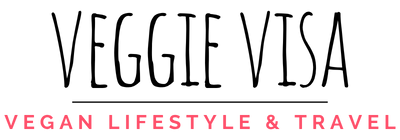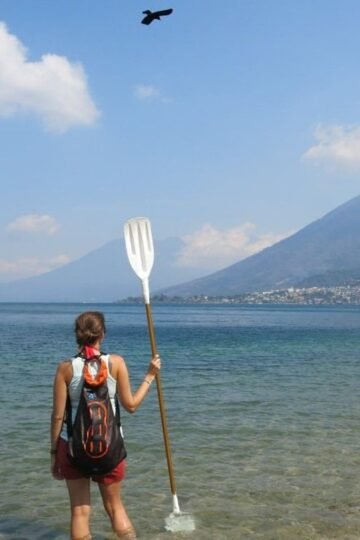Is Honey Vegan? 3 Key Ethical Considerations & Alternatives
The question, "Is Honey Vegan" is inevitably always asked to vegans. At first glance, one may think that honey is a natural, plant-based product, derived from the nectar of flowers. However, the process by which honey is made and the ethical considerations around it, make the answer pretty simple.
Let's delve into the intricacies of honey production and examine the ethical concerns surrounding its consumption. This exploration aims to provide a clear understanding of why the question - Is Honey Vegan? is constantly asked.
Is Honey Vegan?

Before delving into the specifics of honey, it's important to define veganism. Veganism is more than just a diet; it's a philosophy and lifestyle that seeks to avoid the exploitation and harm of animals as much as possible. This includes refraining from consuming animal products such as meat, dairy, eggs, and, yes, honey. Vegans also avoid using products made from animal derivatives, such as leather, wool, and cosmetics tested on animals.
The core principle of veganism is to reduce animal suffering and exploitation.
How is Honey Made?

Honey is produced by bees, specifically by honeybees (Apis mellifera), through a complex and fascinating process. Bees collect nectar from flowers using their proboscis, a long, tube-like tongue. Once collected, the nectar is stored in the bee's "honey stomach," a separate sac that holds the nectar while the bee returns to the hive.
Inside the hive, the nectar is passed from bee to bee, with each bee adding enzymes to the nectar. This process transforms the nectar into honey, which is then deposited into the honeycomb cells. The bees fan the honey with their wings to reduce its moisture content, and once it's sufficiently thickened, they seal the cell with a wax cap.
Honey serves as the primary food source for bees, especially during the winter months when flowers are scarce. It provides them with the energy necessary to maintain the hive's temperature and to survive until the next blooming season.
Ethical Concerns Regarding Honey Consumption

The ethical debate surrounding honey consumption hinges on several factors:
Exploitation of Bees
At the heart of the vegan argument against honey is the idea that bees are exploited in the production of honey. Commercial beekeeping practices often involve manipulating bee colonies for maximum honey yield. Beekeepers may artificially inseminate queen bees, clip their wings to prevent them from leaving the hive, and replace honey with sugar substitutes to maximize profit.
This manipulation is a form of exploitation, as it interferes with the natural behaviors of bees and prioritizes human needs over the well-being of the bees. In this view, consuming honey is inconsistent with the vegan principle of avoiding the exploitation of animals.
Impact on Bee Health
Commercial beekeeping can have negative impacts on bee health. The practice of replacing honey with sugar syrup or corn syrup deprives bees of their natural, nutrient-rich food source, potentially weakening their immune systems. Additionally, the selective breeding of bees to increase honey production can reduce genetic diversity, making bee populations more vulnerable to diseases and pests.
Furthermore, the transportation of hives to different locations for pollination services can stress bees and expose them to new environments and pathogens. This can lead to colony collapse disorder (CCD), a phenomenon where entire bee colonies suddenly die off.
Environmental Considerations
Bees play a crucial role in pollinating crops and maintaining biodiversity. However, large-scale commercial beekeeping can disrupt local ecosystems. For example, the introduction of non-native bees for commercial purposes can outcompete local pollinators, leading to a decline in native bee populations. Additionally, the use of pesticides in commercial agriculture, which bees are exposed to during pollination, can harm bee health and contribute to CCD.
Some argue that by consuming honey, people are indirectly supporting practices that harm both bees and the broader environment, which goes against the vegan commitment to reducing harm to animals and the environment for environmental vegans.
Alternatives to Honey
Given these ethical concerns, and the core principals of veganism, vegans choose to avoid honey altogether and opt for plant-based alternatives. These alternatives include maple syrup, agave nectar, molasses, and date syrup, all of which can be used in place of honey in recipes and as sweeteners.
By choosing these alternatives, vegans can enjoy the sweetness of honey-like products without contributing to the exploitation of bees or the environmental issues associated with commercial beekeeping.
If you want that honey flavor, fear not. Vegan honey does exist! Options include BlendItUp's Organic Bee Free Vegan Honey, Open Coconut's Coconut Honey, and Mrs Taste Green, Honey Free. Alternatively, you can make your own vegan honey at home!
Is Honey Vegan? - Wrap up!
For ethical vegans, the answer should be clear to the question, "Is Honey Vegan?". That said, the decision is ultimately a personal one that should be informed.
Beyond animal exploitation, there are other factors to consider. But if you choose to abstain from eating honey, like me, don't worry. There are alternatives out there, as with most non-vegan food.
Note: this article is for educational purposes only. Veganism is a personal choice and is not about perfection. If you choose to be vegan, your daily choices are up to you and you alone. Nothing in this article is meant to support the uptight vegan police or tell you how to make choices. We all have to do that for ourselves.




